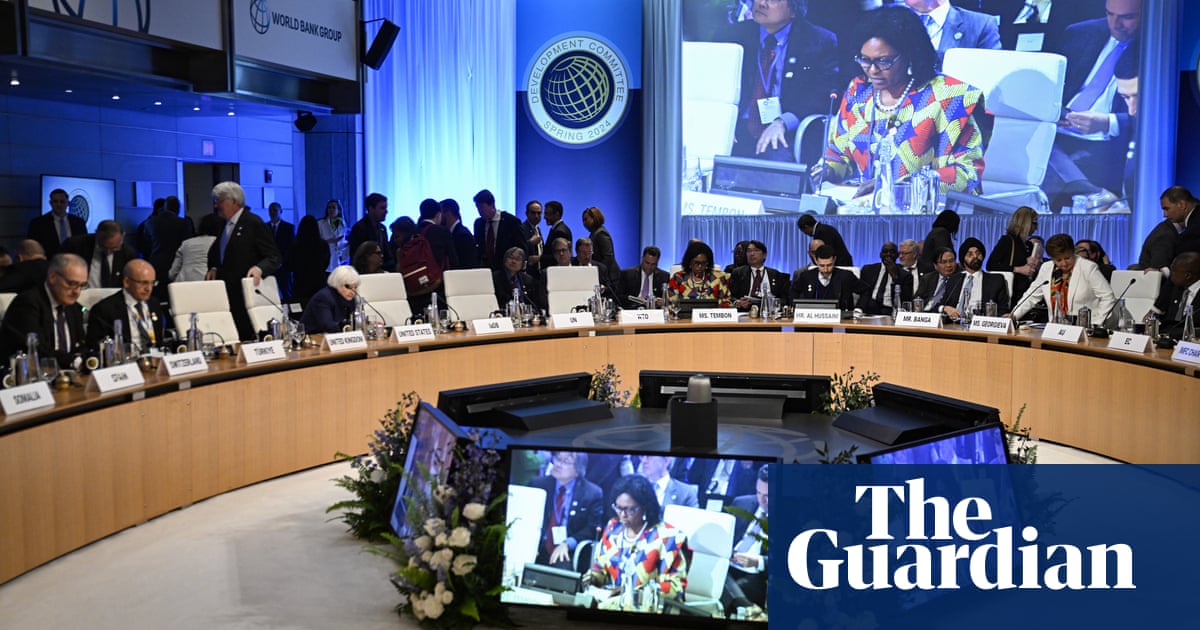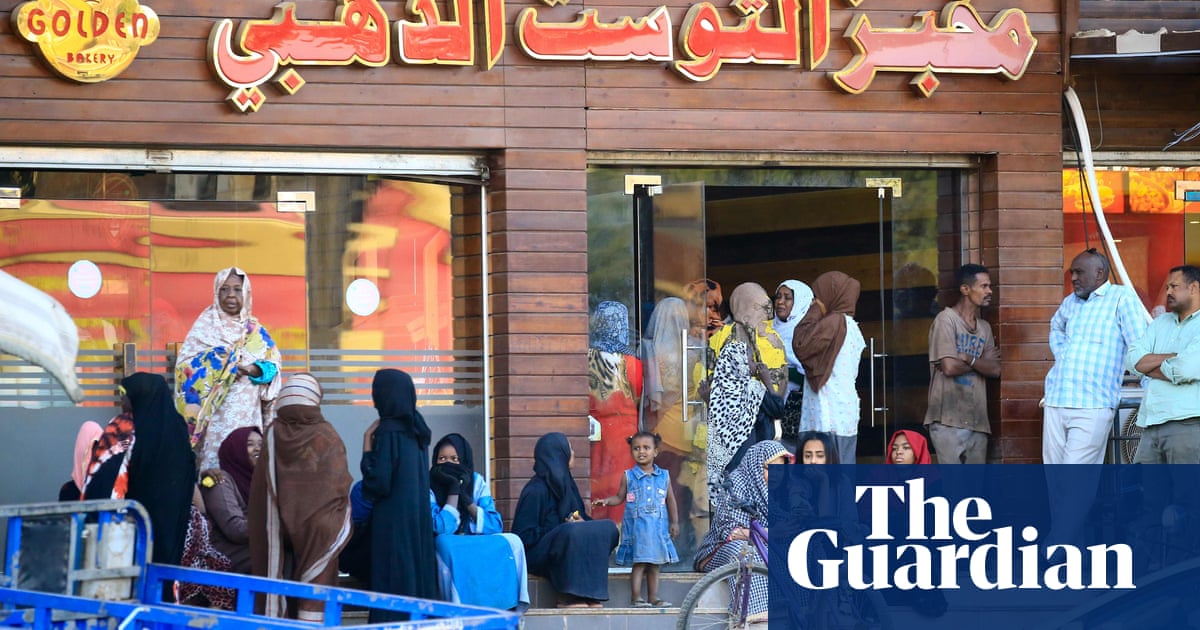
The mechanism for providing debt relief to the world’s poorest countries is failing to produce results and requires a major rethink, a senior official at the World Bank has said.
Indermit Gill, the bank’s chief economist, said that after four years the G20’s common framework – designed to speed up and simplify debt restructuring – had not provided a single dollar of new money.
More than half the 75 countries deemed poor enough to be eligible for concessional finance from the World Bank are either in distress or close to it, and Gill said cripplingly high repayments were entrenching poverty.
Interviewed by the Guardian at the bank’s spring meetings in Washington, Gill said: “We have to recognise the problems. The common framework won’t deliver what leaders say it will. They are saying: ‘This horse is not dead yet, so let’s just keep whipping it.’”
He said a key weakness of the common framework was that private bondholders – an increasingly important group of creditors – were only brought in at the end of debt negotiations.
He said lessons should be learned from the blueprint drawn up in the 1980s by the then US treasury secretary, Nicholas Brady, to deal with a previous debt crisis. The Brady plan provided a systematic approach to debt relief, ensured private creditors were part of the process from the start, and involved creditors accepting losses in return for assurances about the ability of debtor countries’ capacity to repay.
So far, only a handful of countries – including Chad, Ethiopia, Ghana and Zambia – have applied for debt relief through the common framework, and Gill was withering in his criticism of the flagship initiative created in 2020 by the G20 group of leading developed and developing countries.
“The common framework is not working. If the money from debt relief was coming in dribs and drabs, I would say OK, but there hasn’t been a single dollar of debt relief from the common framework.”
Gill said another weakness of the common framework was that its secretariat was the Paris Club – a group of 20-plus creditor countries mostly in the developed west. China – which has become a major creditor – is not a member and has refused to be forced into accepting terms agreed by the Paris Club. “You can’t have the Paris Club playing in the casino with Chinese money,” Gill said.
Failure to come up with a workable debt framework was putting back development by years, the bank’s chief economist added. “Countries are deterred from going through the common framework because they won’t get access to financial markets and they won’t get debt relief.”
Although the IMF said last week that the global economy was on course for a “soft landing”, Gill said he did not accept the argument that the world had “dodged a bullet”.
A few countries – the US, China, India and Indonesia – were doing well but other G7 countries were struggling, he said. “For low-income countries, things are terrible.”
Gill said the problems of heavy indebtedness would not go away, and expressed scepticism that burdens would ease as interest rates came down in the US. “Tightening cycles last years, not months. These countries will continue to face very high debt-servicing costs.”
He said debt payments were forcing low-income countries to cut back on spending on health, education and investment. “That’s not sustainable according to me.”
The IMF takes a more positive view of the common framework, and thinks debt problems would be even worse had it not been set up. Its Africa director, Abebe Selassie, said at a press briefing last week that debt restructuring was a painful and lengthy process. “Without the common framework we wouldn’t have made the progress we have in helping Zambia and Ghana towards debt sustainability.”











